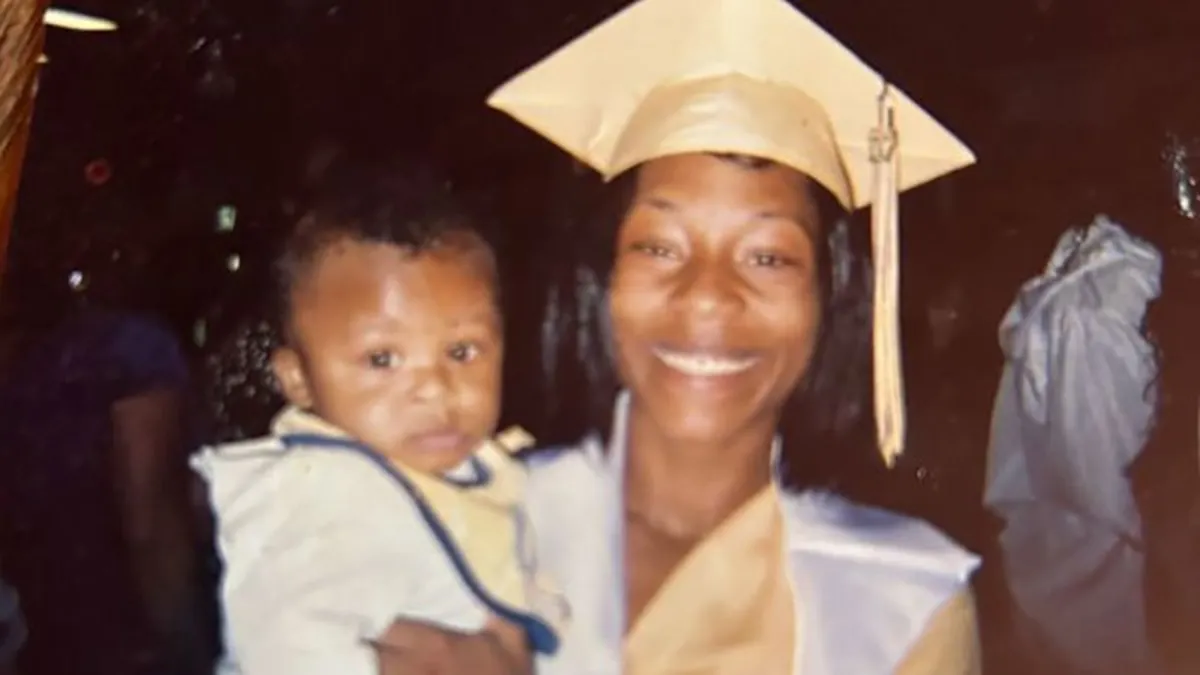
An Illinois jury on Wednesday found Sean Grayson, a former sheriff’s deputy, guilty of second-degree murder in the tragic shooting death of Sonya Massey, a Black woman who called 911 seeking assistance. This case has sparked significant discussions regarding law enforcement practices, particularly concerning the treatment of individuals in their homes.
The jury did not convict Grayson on the more serious first-degree murder charge, which prosecutors sought and carries a severe prison sentence of 45 years to life. Instead, Grayson, aged 31, is facing a potential sentence of up to 20 years in prison or could receive probation. Sentencing is set for January 29, 2024.
On the morning of July 6, 2024, Grayson and another deputy responded to Massey’s home in Springfield, Illinois, after she reported a prowler. The situation escalated when Grayson shot the 36-year-old woman after confronting her about a pot of hot water she had taken off the stove. Grayson claimed that he feared Massey would scald him with the hot water.
The killing of Sonya Massey has raised pressing questions about U.S. law enforcement shootings involving Black individuals in their homes. In response to the incident, Illinois has enacted a law that mandates greater transparency regarding the backgrounds of candidates for law enforcement positions, reflecting a broader push for accountability within police departments.
Initially charged with first-degree murder, Grayson’s case went to trial, where the jury ultimately had the option to consider a charge of second-degree murder. This charge can apply if a defendant is deemed to have acted under "serious provocation" or if they mistakenly believed their actions were justified, even if that belief was unreasonable. Grayson now faces a sentencing range of four to 20 years, which could be halved for good behavior.
Body camera footage from the incident played a crucial role in the prosecution's case. The video, recorded by another deputy, Dawson Farley, showed Massey expressing fear, pleading, “Don’t hurt me,” and repeating, “Please God.” When the deputies entered the residence, Grayson ordered Massey to move the pot of water, leading to a series of events that resulted in her being shot.
During the trial, Grayson testified in his defense, asserting that he perceived the pot's bottom as red, leading him to believe Massey intended to throw the hot water at him. He claimed that Massey’s words felt threatening, prompting him to draw his weapon. However, Farley, who was a probationary deputy at the time and did not fire his weapon, testified that Massey’s actions did not pose a threat to him.
Prosecutors highlighted Grayson’s indifference to public safety following the shooting, which they argued justified keeping him in jail while awaiting trial. However, an Illinois appellate court later ruled that he should be released under the Pre-Trial Fairness Act. An appeal to the state Supreme Court regarding his release remains pending.
The fallout from Massey’s death led to the early retirement of the sheriff who hired Grayson and initiated a federal inquiry by the U.S. Justice Department. The investigation concluded with an agreement requiring the Sangamon County Sheriff’s Department to enhance training, particularly in de-escalation practices, and to develop a program for mental health professionals to assist in emergency calls. Additionally, the department agreed to collect data on use-of-force incidents to promote accountability.
The conviction of Sean Grayson for second-degree murder serves as a pivotal moment in the ongoing conversation about police accountability and the treatment of individuals, particularly in vulnerable situations. As the legal proceedings continue and sentencing approaches, the implications of this case will likely influence future discussions around law enforcement practices in Illinois and beyond.